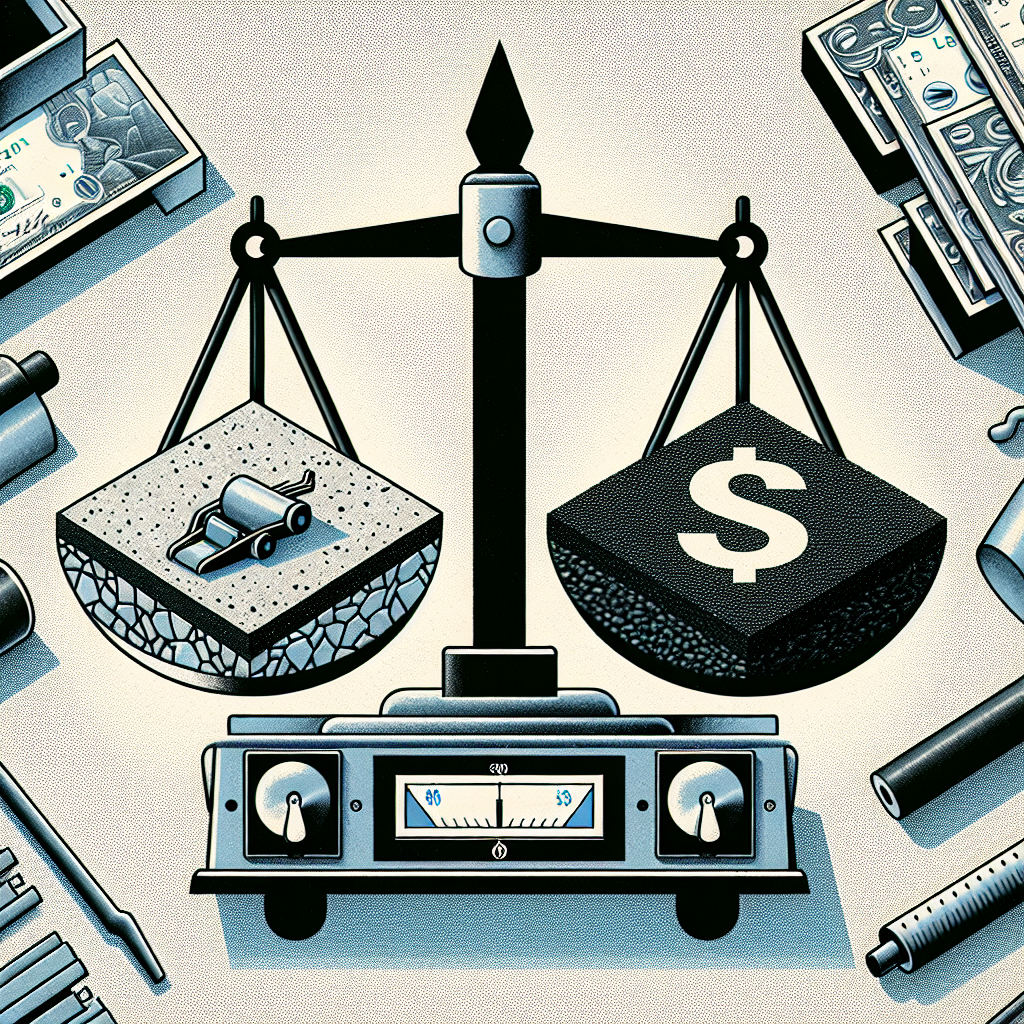When it comes to paving roads, driveways, and parking lots, the debate between concrete and asphalt is as old as time. Homeowners, businesses, and municipalities all face the choice of which material best suits their needs. Understanding the durability and cost implications of concrete versus asphalt can help guide this important decision. Let’s delve deeper into the advantages and disadvantages of each material, humanizing the journey with real-life experiences and expert insights.
The Basics: What Are Concrete and Asphalt?
Before diving into the debate, let’s clarify what concrete and asphalt are.
Concrete: A mixture of cement, water, and aggregates (like gravel and sand), concrete is known for its long lifespan and sturdy characteristics. It is often poured into molds to create a solid surface that can withstand heavy traffic.
Asphalt: Composed primarily of a petroleum product (bitumen) mixed with aggregates, asphalt is flexible and generally cheaper than concrete. It’s often used for road surfaces and parking lots.
The Durability Factor: Which Material Lasts Longer?
When considering durability, it’s important to assess how each material performs over time.
Concrete: The Long-lasting Champion
Concrete often wins the durability contest. Here’s why:
- Lifespan: Concrete surfaces can last 30 years or longer with minimal upkeep. This longevity makes it an attractive option for heavy-duty applications.
- Weather Resistance: Concrete is better at resisting extreme weather, including heat, rainfall, and snow. It doesn’t soften in high temperatures, which can be a concern for asphalt.
Real-Life Example: “We resurfaced our community parking lot with concrete, and it’s held up beautifully for over ten years. The way it withstands heavy winter snow without cracking is impressive,” says Jane, a community manager in Denver.
Asphalt: The Flexible Contender
While asphalt might not last as long as concrete, it has its own strengths:
- Repair and Maintenance: Asphalt is easier to repair. If cracks or potholes appear, they can often be filled quickly, extending the life of the surface.
- Shorter Lifespan: Expect asphalt to last about 15 to 20 years with regular maintenance. This makes it suitable for areas that might see changes in use or heavy wear.
Expert Insight: “For areas with a lot of heavy traffic, such as urban roads, asphalt is a great option because it’s easy to patch and repair,” says John, a civil engineer with over 15 years of experience in pavement design.
The Cost Comparison: Finding the Best Value
Once durability is assessed, cost often comes into play.
Concrete Costs: An Investment in Longevity
While concrete may have a higher upfront cost—ranging from $100 to $150 per cubic yard depending on where you live—the investment pays off when considering its lifespan.
- Lower Maintenance: With minimal maintenance needs, the long-term costs of concrete can be lower. It requires occasional sealing, but routine maintenance is not as demanding as asphalt.
- Value Boost: Many homeowners find that concrete can add value to their property, especially with decorative options available in the market today.
Homeowner Perspective: “We initially hesitated at the higher cost of concrete for our driveway, but now it’s clear it was worth it. We haven’t had to do much to it, and it looks fantastic,” states Mark, a homeowner in Illinois.
Asphalt Costs: Budget-Friendly Yet Temporary
Asphalt typically costs less upfront, usually between $2 to $5 per square foot, making it the go-to choice for budget-conscious projects.
- Frequent Maintenance: However, regular sealcoating every few years can add significant costs over time. This maintenance prevents damage from weather and traffic but requires investment.
- Resurfacing and Replacement: After about 15 years, resurfacing or complete replacement may be necessary, adding to the expense.
Budget-Conscious Thinking: “We opted for an asphalt driveway; it fit our budget better at the time. But I wish we’d thought longer-term about the maintenance costs,” laments Sarah, a recent homebuyer in a suburb of Atlanta.
The Final Verdict: Choosing What’s Right for You
In the end, the choice between concrete and asphalt comes down to your specific needs, preferences, and budget.
- For Longevity and Minimal Maintenance: If you’re looking for durability and long-term value, concrete might be your best bet.
- For Upfront Affordability: If cost is your primary concern and you don’t mind committing to regular maintenance, asphalt could be the way to go.
When deciding, consider your local climate, traffic patterns, and how long you plan to stay in your home or location. Making an informed decision will not only enhance the surface you’re paving but also align with your financial priorities and lifestyle.
Ultimately, whether you choose concrete or asphalt, both materials have their distinct advantages. Look at the bigger picture, consult experts, and weigh personal experiences to find the perfect fit for your paving project.


